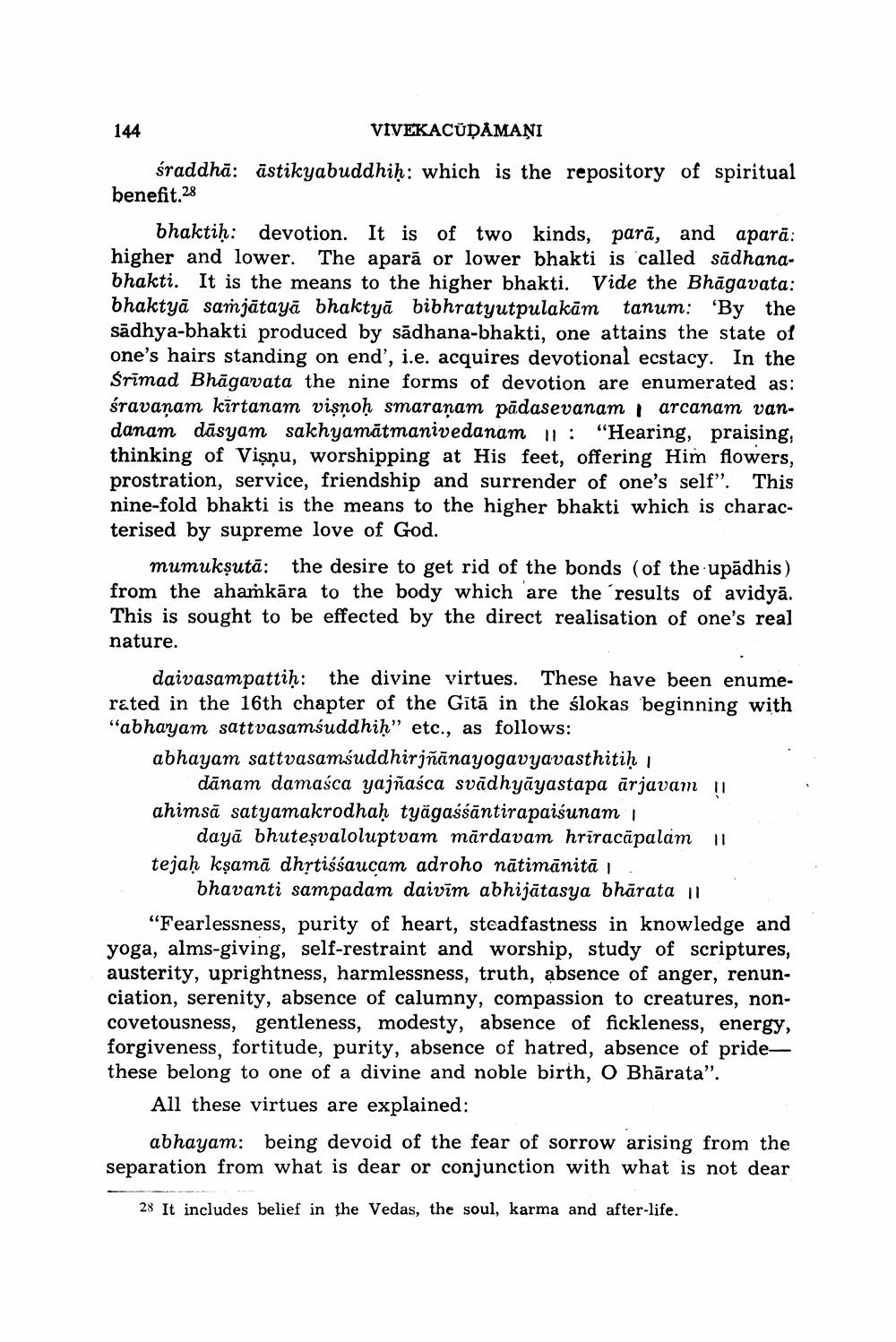________________
144
VIVEKACŪDAMAŅI śraddhā: āstikyabuddhiḥ: which is the repository of spiritual benefit.28
bhaktih: devotion. It is of two kinds, parā, and aparā: higher and lower. The aparā or lower bhakti is called sādhanabhakti. It is the means to the higher bhakti. Vide the Bhāgavata: bhaktyā samjātayā bhaktyā bibhratyutpulakām tanum: 'By the sādhya-bhakti produced by sādhana-bhakti, one attains the state of one's hairs standing on end', i.e. acquires devotional ecstacy. In the Srimad Bhāgavata the nine forms of devotion are enumerated as: śravanam kirtanam vişņoh smaraṇam pādasevanam, arcanam vandanam dāsyam sakhyamātmanivedanam 11: "Hearing, praising, thinking of Vişnu, worshipping at His feet, offering Him flowers, prostration, service, friendship and surrender of one's self”. This nine-fold bhakti is the means to the higher bhakti which is characterised by supreme love of God.
mumuksutā: the desire to get rid of the bonds (of the upādhis) from the ahamkāra to the body which are the results of avidyā. This is sought to be effected by the direct realisation of one's real nature.
daivasampattiḥ: the divine virtues. These have been enumerated in the 16th chapter of the Gītā in the ślokas beginning with "abhayam sattvasamśuddhiḥ" etc., as follows: abhayam sattvasamśuddhirjñānayogavyavasthitih i
dānam damasca yajñaśca svādhyāyastapa ārjavam ! ahimsā satyamakrodhaḥ tyägasśāntirapaisunami
dayā bhutesvaloluptvam mārdavam hriracäpalam 11 tejaḥ kṣamā dhrtissaucam adroho nātimānitā 1.
bhavanti sampadam daivīm abhijātasya bhārata 11 "Fearlessness, purity of heart, steadfastness in knowledge and yoga, alms-giving, self-restraint and worship, study of scriptures, austerity, uprightness, harmlessness, truth, absence of anger, renunciation, serenity, absence of calumny, compassion to creatures, noncovetousness, gentleness, modesty, absence of fickleness, energy, forgiveness, fortitude, purity, absence of hatred, absence of pridethese belong to one of a divine and noble birth, O Bhārata".
All these virtues are explained:
abhayam: being devoid of the fear of sorrow arising from the separation from what is dear or conjunction with what is not dear
28 It includes belief in the Vedas, the soul, karma and after-life.




